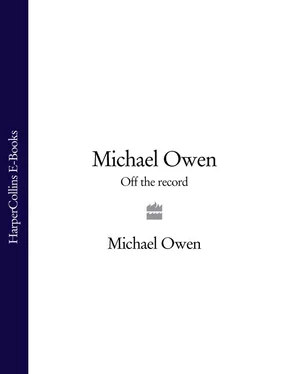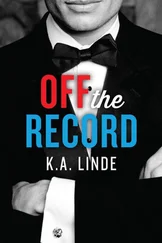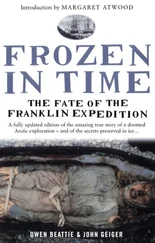From my earliest days as a footballer I was up there with the big boys – we’re talking size and age here, not fame. Almost from my first serious kick I left my own generation behind to take on older lads – perhaps starting a trend that ended with my World Cup goal against Argentina when I was only 18.
My first memories of my life in football date from when I was seven. I started properly with Mold Alexander, five miles from the family home, though people often trace my beginnings to Hawarden Pathfinders, who were my local cub side. They played every few months, so fixture congestion was hardly a problem. When Dad took me to Mold he was told that the youngest age group was Under-10s, which didn’t look too promising given that I was still only seven. But after a couple of training sessions I managed to force my way on to the substitutes bench, from where I would often come on and score.
Things started to get serious when I was chosen, at the age of eight, to represent Deeside Schools under the management of Bryn Jones and his assistant Dave Nicholas. Their motto was ‘first to the ball’, which they stuck to the dressing-room door. Though playing for Deeside seemed a huge promotion at the time, I realize now that you don’t really leave an imprint in football until you become a professional. How many people, for instance, could name the record goalscorer for England Under-15s? (It’s me, by the way.) Still, for me to be the youngest boy to be picked for Deeside Schools felt like an immense achievement at the time, even if it doesn’t now. I beat Gary Speed’s age record and then, in my third year, Ian Rush’s highest total for the number of goals in a season. To be in the local papers at 10 or 11 in the same sentence as Ian Rush was about as good as it could get.
For a while, then, I was an eight-year-old playing in an Under-11 county side. I could score goals at that age and at that level, but I think Bryn Jones and other administrators of Deeside Schools felt they needed to be fair to the older boys in that age group and not allow them to be ousted by an eight-year-old kid. For my second season, however, I was made captain and I played every game. I scored 50-odd goals in 30 or so games, and then in my final year I hit 92. The papers were full of it. I actually broke Ian’s record at a tournament in Jersey, and my dad and younger sister were there to witness the event. In an equivalent number of games I beat Rushie by two, but we played a lot more matches than he did in his record-setting year so I ended up pulling 20 clear.
I can still remember the decisive strike that day, though all my goals at that age were virtually identical: a ball over the top, followed by a sprint and a finish. I was quicker than everyone else at that time so it was always a one-on-one, with a finish to the side. You don’t get many crosses or diving headers in Under-11 football; you’re always running on to through-balls, with the full-backs mysteriously playing everyone on side. When I scored against Argentina at France 98, and in the 2001 FA Cup final against Arsenal, I can recall jogging to the touchline trying to assess the meaning of what I’d just done. The first time I went through that mental process, I suppose, was when I scored in Jersey to surpass Ian Rush in Deeside’s record books.
I hadn’t yet met Rushie when I improved on his earliest achievement in football, and I didn’t cross his path for a long time after I arrived at Liverpool. By then he had left Anfield, though I did see him occasionally in the players’ lounge, or doing a stint on local radio. I didn’t get to talk to him properly until January 2003, when he rejoined the club as the strikers’ coach. I’ve had a couple of rounds of golf with him since and he’s a mate now. When he was first unveiled as Liverpool’s striking coach we both did interviews about each other, and the Deeside scoring record was usually the first question to be asked.
There’s a funny story attached to my second proper association with a local club side. After Mold Alexander, I moved on to Hawarden Rangers and scored about 116 goals in 40 games in their colours. We won everything. When the club’s annual awards came round, I was desperate to be Player of the Year, as all young boys are. I just knew I was head and shoulders above the other lads in the team. But the winner was … our goalkeeper. We were winning 10–0 virtually every week, and our keeper, who was two years younger than everyone else, had barely made a save all season. It wouldn’t bother me now if someone got Player of the Year ahead of me, but when you’re 12 it really hurts. It’s life and death. You wait all week for Saturday to come.
Dad was livid. ‘You’re not playing for them again,’ he told me. The following season I was going to confine myself to the county team (though I was also by that time playing Liverpool youth games at the weekend). However, the manager of St David’s Park, another local side, was especially persistent and promised Dad that if I joined them I wouldn’t be asked to play too many times.
‘Just let him play in four or five,’ he pleaded.
‘Oh, go on, then,’ Dad replied.
St David’s were about to play Hawarden Rangers, and the manager came on to ask me to play against my old club – the one that had deprived me of the Player of the Year award. I wanted to spite them so much that I agreed to make myself available. We beat them 4–3 and I scored all four of our goals. There were rumours that the Hawarden manager was going to report the St David’s manager for tapping me up, though it never came to much. You can imagine the feeling of smugness as Dad and I walked back to the car.
When you’re the top man at football in primary school, you attract a certain amount of respect from your peers; once you get into secondary school, however, not everyone’s quite so fascinated. At Hawarden High, many of my contemporaries developed an interest in fighting and smoking, but I had to stay off that path. If you’re a prospect, it’s then that you have to retain your focus on the game. It was around that time that I started to become aware of jealousy in other children. I was well liked at school, but when it was announced that I was leaving to go to Lilleshall, in my third year at senior school, a couple of the tougher lads would occasionally snarl at me. I assumed it was envy because I was doing so well and moving on. It didn’t turn physical and I didn’t tell my parents, though my dad seemed to be aware that I had stirred up some animosity in one or two kids. Anyway, schools are full of cliques and hierarchies. I had my own. I certainly never went home crying, saying people were picking on me.
My best friend from my school days is Michael Jones, who I met at infant school. He lived about three miles away from us, so until I was allowed to ride off on my bike I had to rely on Mum to drive me to his house. Later we played golf every other day. Whenever I’m not working we go out for a meal with our partners, or he comes round to watch a match. We always look out for each other. Didi Hamann, at Liverpool, has become good friends with Mike, and he often joins us on the golf course. Mike turned pro in 2003 and has been to South Africa to play in the Sunshine Tour. His plan is to join the Pro Tour, which is two levels below the European Tour. He’s got a bit of climbing to do, but at least he has a sponsor to see him through his first year.
I didn’t really enjoy the academic side of school, though I quite enjoyed maths. I also liked geography. General knowledge interested me too. At home on winter nights Mum and Dad would set quizzes. It was the formal aspect of being taught through lessons that turned me off. In those environments I would find myself looking at my watch, gazing through the windows and waiting for PE – anything, really, except classroom teaching.
Читать дальше











